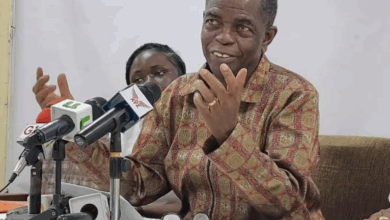Incompetence is the One Breeding Corruption


When people talk about corruption, they often imagine greed as the root cause, individuals seeking personal gain at the expense of the public good. But beneath almost every scandal lies something deeper and far more pervasive: incompetence. It is incompetence that opens the cracks through which corruption thrives, spreads, and becomes normalised.
If a single agency head can allegedly squander tens of millions without detection by the entire machinery of government, then what we have is not merely a corruption problem but a governance failure. It means systems of oversight are weak, managers lack rigor, institutions are reactive instead of proactive, and public officers are more focused on disbursing funds than delivering results. In such an environment, corruption is not just possible, it is inevitable.
Competence, therefore, is not the opposite of corruption but its most effective antidote. A competent public service does not just detect wrongdoing, it prevents it. It ensures that before money is released, objectives are clear, outputs are measurable, and accountability mechanisms are built into every transaction. Incompetence, by contrast, treats money as the end rather than the means, and once that happens, even well-intentioned policies collapse into waste and scandal.
How, for instance, does a sector ministry release huge sums to an agency without asking for measurable outcomes? Why do we focus so heavily on financial audits while neglecting outcomes and value-for-money audits? In a country where schools sometimes shut down because feeding grants are delayed, and many institutions survive on salaries alone, every misplaced cedi is not just a technical lapse, it is a moral failure.
This is where Parliament’s oversight role becomes crucial, and regrettably, where it often falls short. Parliament is not only a law-making body; it is the ultimate watchdog over the Executive’s spending and performance. When parliamentary committees fail to ask hard questions, track outcomes, or publish timely reports, they indirectly nurture the very incompetence that breeds corruption. Effective oversight requires diligence, courage, and independence, qualities that must be restored if Parliament is to serve its constitutional purpose.
The cure lies not only in punishing offenders but in reforming the ecosystem that enables them. We need transparency at every level, and vigilance across the citizenry. If Ghanaians demand that Disbursement and Outcomes Dashboards be published regularly, and not only after scandals and investigations, we would begin to close the information gap that fuels abuse. Citizens would be able to see how much has been released, to whom, for what purpose, and whether the intended results are being achieved. The moment a cedi fails to deliver value, it should trigger alarm long before it reappears as a mansion, a luxury car, or a second and third wife.
Some of these corruption cases happen only in dysfunctional states like Equatorial Guinea where governance is ornamental and oversight is absent. Ghana cannot afford that slide. We must build systems that function, not because people fear exposure, but because efficiency, integrity, and results are embedded in how we work.
Corruption flourishes where incompetence reigns. Fix competence in the civil service, in ministries, and in Parliament, and corruption will wither.
DISCLAIMER: The Views, Comments, Opinions, Contributions and Statements made by Readers and Contributors on this platform do not necessarily represent the views or policy of Multimedia Group Limited.
DISCLAIMER: The Views, Comments, Opinions, Contributions and Statements made by Readers and Contributors on this platform do not necessarily represent the views or policy of Multimedia Group Limited.
Source link





